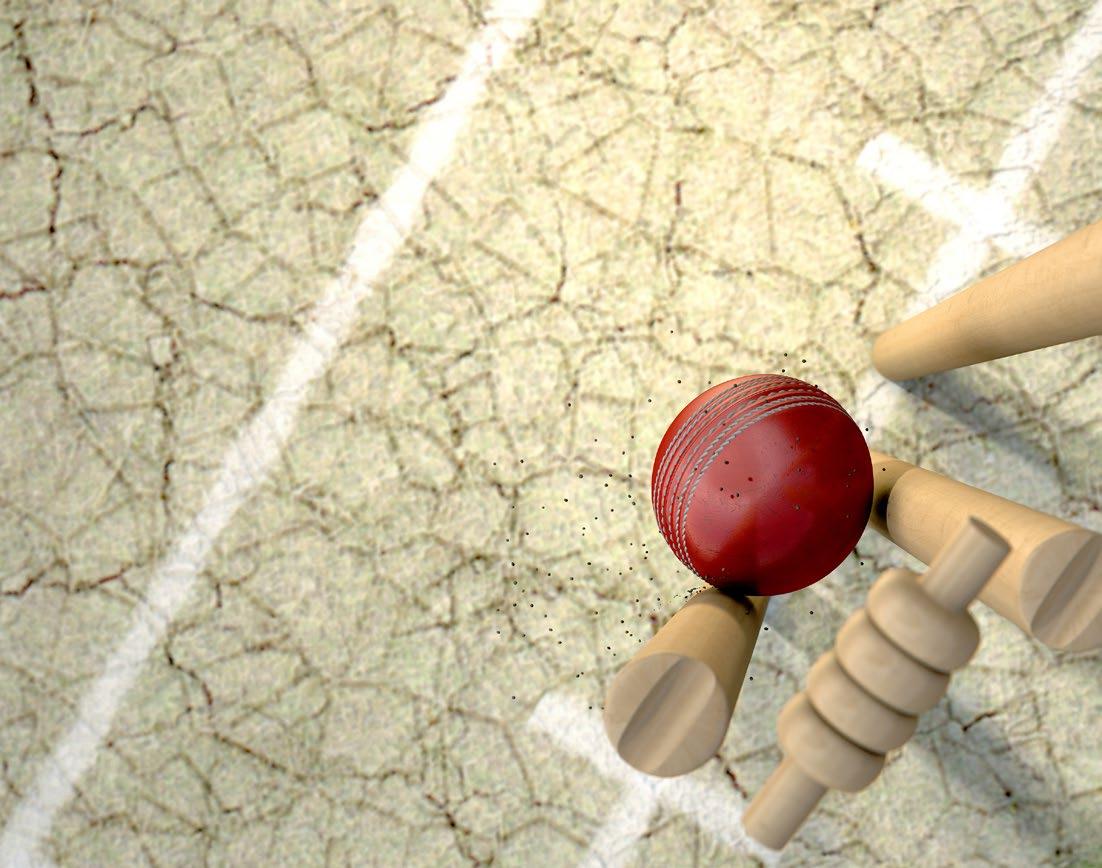
6 minute read
Let’s Play Cricket - the iconic Aussie past-time is becoming increasing accessible for everyone
by Source
Let’s play
CRICKET
The iconic Aussie past-time is becoming increasing accessible for everyone.
One of Australia’s muchloved summer sports is gaining a huge traction with special needs children as understanding grows for the need to activate inclusive programs.
Western Australia is certainly on the front foot with its offering for people with autism.
Autism WA Director of Therapy and Clinical Services, Tasha Alach, says its Autism in Cricket Program is providing great opportunities that are being embraced by hundreds of children.
That situation wasn’t so as little as a year ago before the program was launched.
“Often the parents were worried that if they did get involved, their child would not be accepted into the cricket community and would be excluded from their peers, so they did not want to risk trying,” Tasha explains.
“Simultaneously, we had cricket clubs contacting us to know how to support children with autism to be a part of their club. There was also a lack of understanding of why a certain behaviour was happening and how they could help teach them the skills required for cricket in a way that resonated with them in comparison to children with a physical disability.
“We also had a number of families who had taken the step to enrol their child in their local club, and because of the stigma that is still present in our community, these children and their families were excluded. This resulted in these families leaving their clubs devastated and even more isolated from their community.”
As a result, Autism WA collaborated with clubs to establish a program to better break down barriers.
In its first season 12 months ago, 45 clubs, 316 people and 19 schools signed up and it is hoped the program will be expanded into other states and other sports soon. “Being part of a club is really special – feeling part of something and having a chance to play your part in your club’s success. Contributions to the success of a club come in many different forms – batting, bowling, fielding, scoring, helping out at training and organising the equipment – just to name a few,” Tasha says.
“Each role is like a link in a chain – every link is important! This initiative is designed to give every boy and girl a chance to make a contribution, to experience what it means to be a club member.”
Tasha says that cricket is the perfect sport for children and adults with autism, as many of the skills required to play the game match the strengths of autistic people.
“It has routine, is predictable, is a team sport and the club culture of cricket has a good value base for creating change,” she explains.
“The Autism Association is passionate about creating inclusion for people with autism and we searched for a grant to launch our program with the aim of supporting more autistic children to get off the side-lines and able to participate in their local community cricket clubs.”
The program was funded initially with a state government grant and has since received support from Margie Oldfield, president of the Wembley Cricket Club.
“She was a huge driving force for the program. Margie helped us to create our connections with the WA Cricket Community and grow the program
to what it is today. Through Margie (former Australian Test star), Adam Gilchrist jumped on board as our ambassador and then the team from the Western Australian Cricket Association (W.A.C.A) came on board and supported us to integrate our training and resources across community cricket clubs in Western Australia. “We know that if we can support these children and families be part of their community, they can have a better life and feel included and supported by their local community.
“We all have a responsibility for supporting children with disability in our local community, we need to create the opportunities for inclusion for the child with autism and their family. Simultaneously, we need to build the knowledge of children who do not have disabilities, to learn more about disabilities and develop skills to help their peers with Autism.” “We have a long way to go, but already in this short period we have made huge achievements and are breaking down barriers and creating new opportunities. We have a wonderful cricket community around us and together we will continue to dream big and create sustainable change.”
One organisation that already has a nation-wide reach is Taverners Australia, which has 12 branches around Australia that are operated by around 100 direct volunteers acting as committee members.
National Chairman John Jeffreys,

from Melbourne, has been a Taverner for 25 years and in his current leadership role since 2014.
“This is my time to give back. I have been very lucky throughout my life as a businessman and actively playing sport for many years. I now have the time to help those less fortunate than ourselves and by leading the Taverners,” he said.
“It is very simple – when I meet youngsters as they first come in contact with the Taverners, they are more often than not lost, depressed and have no selfconfidence. Years later when I meet them again, they have grown dramatically. We are not the only reason for this growth but we are a substantial part. It is this that spurs me on to do more.” Groups supported into the sport by the Taverners include the deaf, blind, intellectually impaired as well as indigenous Australians and young girls.
“Our key focus is the deaf, blind and intellectually impaired. These individuals all have financial constraints as most if not all are on some form of pension or support,” John says. “We see wonderful outcomes for our support with individuals growing as people and members of the community through being supported to play sport, particularly cricket. These individuals become more confident, assured and able to be more connected members of the community.” Each year the organisation distributes about $500,000 across Australia and has distributed more than $14 million since inception.
“We love supporting grass roots individuals, groups and causes. Our branches tend to raise funds locally and distribute locally,” John explains.
“Nationally, we support larger programs such as the National Cricket Inclusion Championships (NCIC) where deaf, blind and intellectually impaired girl and boy cricketers play in a national competition, covering all states and some territory teams in these 3 divisions each January.
“The NCIC is our flagship program and we have donated $100,000 in each of the last 2 years and a total of $340,000 over 4 years.” The Tavs Foundation Ltd is a registered charity with donations over $2 tax deductible and often raises funds through sports nights, golf days, wine and cheese functions and raffles.

“The Tavs foundation distributes 100% of funds raised and the Taverners around Australia distributes more than 90% of funds received. This is unique in the charity world of today and we can do it because of our volunteer base, including all executives.”
COVID-19 has unfortunately forced the cancellation of numerous events, which will affect fundraising this year. “Sadly, there is more support needed than we can provide. The bushfires have generated another cohort of needy in the fire ravaged regions. Individuals, clubs, grounds and players are now in significant financial pain.
“I think the virus will cause havoc for all charities and sadly many needy individuals.”

